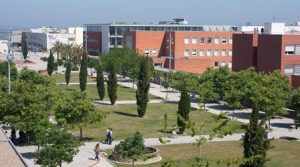Teresa Carvalho and Sara Diogo

University of Aveiro. Photo from www.ua.pt
Autonomy has been at the core of the University since its creation, in the Middle Ages, and it has always been greatly cherished by academics. Nevertheless, autonomy has been constantly redefined over time, contextually and politically, as the influence of the State (and even the Church) in higher education systems has been changing. In the last decades, all over Europe, welfare states have been reconfigured as the role of governments has been limited to supervision, accompanied by increasing accountability, questioning academics’ professional autonomy.
In this study, we analyse the relationship between institutional and academic autonomy in higher education by comparingPortugal and Finland. Portugal and Finland offer an excellent case-study because despite different historical perspectives of higher education and different welfare state regimes as well as bureaucratic-administrative traditions, they have similar higher education systems and academic career structures, and have recently adopted similar political initiatives framed by New Public Management leading to a move from a collegial to a managerial model of governance. Thus, our interest was to understand how Portuguese and Finnish academics perceived (the influence of) these political attempts in the increase (or not) of institutional autonomy as possibly leading to an increase in their professional autonomy.
By crosschecking the literature review with document analysis (mostly legislation) and conducting 47 interviews to system and institutional key actors of both Portuguese and Finnish higher education systems (one university in each country)it became clear that professional autonomy has been shaped by the attempts to promote institutional autonomy proposed by the Law 62/2007 in Portugal and its homologous in Finland (Yliopistolaki 558/2009).
This also tells us that the way both governments try to rhetorically enhance institutional autonomy is very similar, being possible to identify four dimensions of institutional autonomy in Portuguese and Finnish recent higher educational reforms: organisational, policy, interventional and financial (Boer et al. 2010). However, contrary to what is politically assumed, the increase in autonomy is not the dominant trend in all these dimensions, although there are some common shifts in both countries, namely a tendency to increase organisational autonomy by strengthening leadership and management in universities and by decreasing collegial decision-making. The increase in freedom to manage human resources and finances reveals a trend to increase policy autonomy even if this is accompanied by a higher dependency on the government.
Our analysis also reveledthatthere is complete correspondence between institutional and professionalautonomyand the way academics perceive the effects at the professional level. Academics feel a decrease in their autonomy corresponding mainly to aperception of decrease in organisational autonomy (due to the decrease in collegial decision-making) and interventional autonomy (due to the increase in bureaucratic processes).While some academics perceive that they have more freedom to managehuman resources, others maintain that academics lose professional self-regulation sincethey do not control recruitment and performance assessment processes.
However, internal segmentationof the profession is a relevant variable in the analysis of perceptions on professionalautonomy because individual academics are affected differently.In fact, there are no homogeneous perceptions within academics group in each country concerning professional autonomy.The article only focus on a single university in each country making it empirically limited, and does not include academics with a temporary contract. Arguably, it is possible that academics with temporary contracts have distinct and different perceptions concerning their professional autonomy.
Sara Diogo is an invited assistant Professor at the University of Aveiro (Portugal) and a Post-Doc Researcher at GOVCOPP – Governance, Competitiveness and Public Policies Unit. She is also a Researcher at CIPES – Research Centre on Higher Education Policies. She did a joint-PhD in the University of Aveiro and in the Finnish Institute for Educational Research at the University of Jyväskylä in Finland, comparing policy changes in Portuguese and Finnish higher education systems. Her research interests focus on higher education governance and management, internationalisation, public policy and public administration, and international cooperation for development. She has published book chapters in Springer and Palgrave editors, and articles in international journals such as Higher Education Management and Policy Journal, Journal of the European Higher Education Area, European Journal of Higher Education, Journal of Higher Education Policy and Management, Working Papers in Higher Education Studies, Education Sciences, etc.
Teresa Carvalhois an Associate Professor at the Department of Social, Political and Territorial Sciences, University of Aveiro, is a senior researcher at CIPES (Center for Research in Higher Education Policies) and member of the research unit on Governance, Competitiveness and Public Policy (GOVCOPP). She is a member of the ESA (European Sociological Association) Executive Committee as RN Council chair. She was chair of the European Sociological Association Research Network on Professions (RN19), and a member of the executive board of the International Sociological Association Research Committee on Professional Groups (RC 52) in 2013-2015 and in 2015-2017. She is member of the Editorial Team of the Journal Professions and Professionalism. She was member, and sometimes coordinator, of several European and National sponsored projects in the fields of New Public Management, Managerialism, the Sociology of Professions and gender studies.
This post was initially published on Europe of Knowledgeblog.

